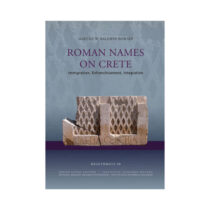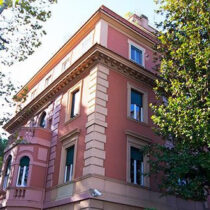The DAI, Morocco’s Ministry of Youth, Culture, and Communication, and the Institut National des Sciences de l’Archéologie et du Patrimoine (INSAP), in collaboration with the National Library of the Kingdom of Morocco (BNRM), are excited to present the exhibition “Planet Africa”.
“Planet Africa – An Archaeological Journey Through Time” offers insights into two million years of human history, enriched by more than two centuries of research tradition. As a traveling exhibition, “Planet Africa” brings the discoveries of archaeological research to a wide audience across two continents, bridging historical insights with ongoing projects and research questions. Through compelling images, graphics, and films, the exhibition creates an engaging dialogue between past and present, opening a panoramic view of Africa’s landscapes and societies.
“Planet Africa” is a one-of-a-kind exhibition project, notable for its simultaneous presentation in Germany and across five African venues. The tour has already begun on November 19, 2024, with its inaugural public display at the National Library in Rabat (Morocco), followed by its second African venue at the National Museum of Kenya in Nairobi on November 29, 2024. The German premiere will be held in December in Berlin, where the exhibition will run from December 6, 2024, to April 27, 2025, at the James-Simon-Galerie in collaboration with the Museum of Prehistory and Early History, part of the Staatliche Museen zu Berlin. The exhibition is a collaborative effort involving a
wide network of German and African researchers as well as artists from across Africa. Presenting the exhibition on two continents requires a broad international network of archaeologists, museum professionals, researchers, and committed individuals: “Through shared synergies, a multidisciplinary and cross-cultural masterpiece has come to life, underscoring the power of collaborative effort,” noted Wazi Apoh, co-curator and professor at the University of Ghana.
The German Archaeological Institute (DAI) plays a pivotal role in fostering archaeological research and cultural exchange between Germany and Africa. “Planet Africa” not only highlights the rich diversity of Africa’s cultural landscapes but also emphasizes the importance of transcontinental collaboration. The project aims to promote an equitable scientific dialogue and strengthen Africa’s cultural infrastructure in a sustainable way: “Only together can we establish a foundation for a respectful, enduring partnership that honors the diverse voices and perspectives of all involved,” confirms Jörg Linstädter, Executive Director of the Commission for Archaeology of Non-European Cultures at the DAI in Bonn. Integrating African perspectives into archaeological research provides a fuller understanding of Africa’s history and cultural heritage.
The Project
The DFG-funded program “Entangled Africa: Intra-African Relations between the Rainforest and the Mediterranean, ca. 6,000–500 Years Ago” includes 13 projects exploring sub-Saharan Africa from an African perspective. The program’s aim is to uncover and illuminate intra-African relationships and networks from the last 6,000 years to the start of the colonial period. Researchers from the DAI and prominent universities in Berlin, Münster, Cologne, and Frankfurt am Main are working in close partnership with African colleagues. The collaborative findings form the foundation of “Planet Africa”, funded by Germany’s Federal Foreign Office, the German Research Foundation (DFG), and the Berlin State Museums. With generous support, “Planet Africa” is free to
the public at the James-Simon-Galerie in Berlin and will be presented in Ghana, Morocco, Kenya, Mozambique, and Eswatini. In Africa, the exhibition will be set up specifically at each venue.





